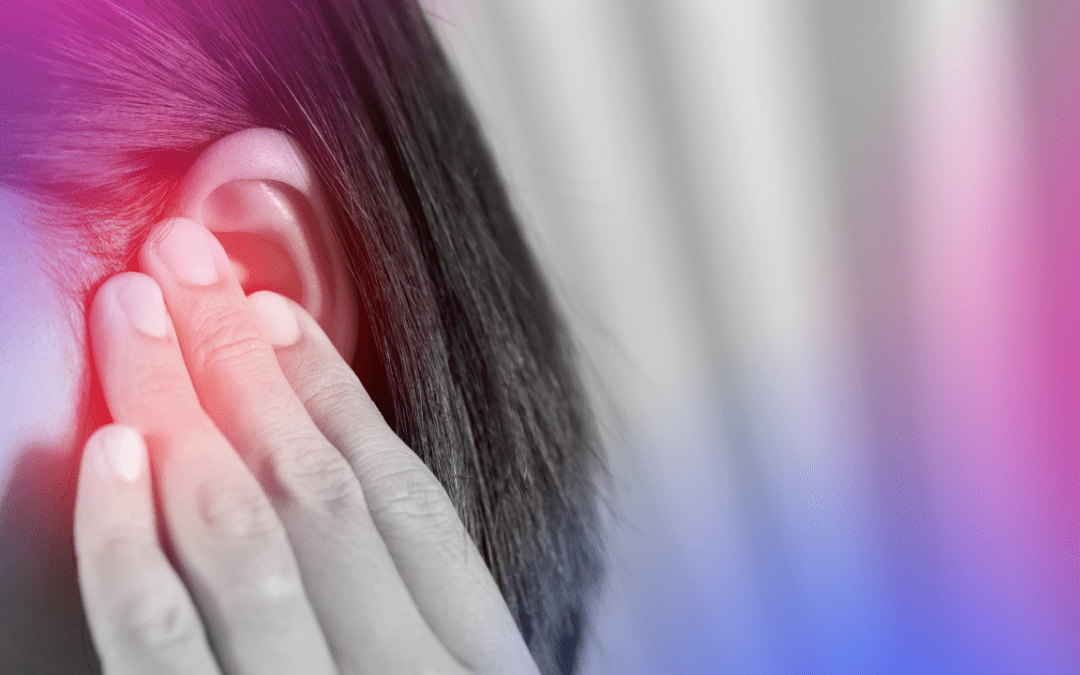Menopause brings a host of changes to a woman’s body, some expected and others less so. One surprising symptom that many women experience is itchy ears. Understanding the connection between menopause and ear discomfort is essential for effective relief.
Understanding the Connection Between Menopause and Itchy Ears
Hormonal Changes and Their Impact on Ear Health
During menopause, estrogen levels decline. Estrogen plays a crucial role in maintaining skin hydration and elasticity. As its levels drop, the mucous membranes, including those in the ears, can become dry and less resilient, leading to itchiness.
Common Ear-Related Symptoms During Menopause
Beyond itchiness, menopausal women may experience:
- Tinnitus (Ringing in the Ears): Reduced estrogen can affect blood flow to the inner ear, leading to ringing sensations.
- Dryness and Discomfort: The skin inside the ears may become dry, causing irritation and a persistent urge to scratch.
- Increased Sensitivity: Some women notice an increased sensitivity to sounds or even mild ear pain due to changes in their auditory system.
Identifying the Causes of Itchy Ears
Dry Skin and Mucous Membranes
The decline in estrogen reduces the production of natural oils, leading to dryness in various body parts, including the ears. This dryness can cause the skin to flake and itch.
Ear Eczema
Menopause can trigger or worsen eczema, a condition characterized by inflamed, itchy skin. When it affects the ears, it can lead to significant discomfort. Symptoms of ear eczema may include:
- Red, inflamed patches inside or around the ears
- Dry, scaly, or cracked skin
- Persistent itching and irritation
Allergic Reactions
Sensitivity to new skincare products, earrings, or environmental factors can cause allergic reactions, leading to itchy ears. Common allergens include:
- Nickel found in earrings and jewelry
- Perfumed shampoos and conditioners
- Certain hearing aids or earplugs
Wax Buildup or Overcleaning
Changes in skin hydration during menopause may contribute to excessive wax buildup or, conversely, excessive dryness due to overcleaning. Cotton swabs and other objects inserted into the ear canal can strip away protective oils, exacerbating dryness and irritation.
Effective Solutions for Relief
1. Moisturizing the Ear Canal
Keeping the ear canal moisturized can alleviate dryness and itchiness. Consider:
- Hypoallergenic Moisturizers: Regular application of skin-safe moisturizers can help maintain hydration.
- Natural Oils: A few drops of olive or baby oil can soothe dry skin inside the ear.
- Humidifiers: Adding moisture to indoor air can prevent excessive skin dryness.
2. Managing Ear Eczema
For those experiencing ear eczema:
- Topical Corticosteroids: These can reduce inflammation and itching. Consult a healthcare professional before use.
- Avoiding Triggers: Identify and steer clear of irritants that may worsen eczema, such as certain soaps or earrings.
- Gentle Cleansing: Use mild, fragrance-free cleansers and avoid aggressive scrubbing.
3. Stress Reduction Techniques
Chronic stress can exacerbate menopausal symptoms, including itchy ears. Incorporating stress-reducing practices into daily routines can be beneficial:
- Mindfulness and Meditation: Regular practice can promote relaxation and reduce stress levels.
- Deep Breathing Exercises: Simple techniques can help manage stress responses effectively.
- Physical Activity: Exercise supports circulation and overall skin health, reducing dryness and irritation.
4. Dietary Considerations for Skin Health
A diet rich in essential fatty acids, vitamins, and antioxidants can support skin hydration and resilience. Consider incorporating:
- Omega-3 Fatty Acids: Found in salmon, flaxseeds, and walnuts, these help maintain skin moisture.
- Vitamin E: Present in nuts, seeds, and leafy greens, it supports skin repair and hydration.
- Hydration: Drinking enough water can help maintain overall skin and mucous membrane health.
5. Hormone Replacement Therapy (HRT)
HRT can address the root cause of menopausal symptoms by replenishing declining hormone levels. By restoring estrogen levels, HRT may alleviate dryness and associated itchiness in the ears.
How HRT Can Help:
- Restores natural oil production in the skin and mucous membranes
- Reduces inflammation and sensitivity in the ears
- Helps with overall hydration and skin elasticity

When to Seek Professional Help
While home remedies can provide relief, it’s essential to consult a healthcare professional if:
- Symptoms Persist or Worsen: Continuous discomfort may indicate an underlying condition.
- Signs of Infection Appear: Such as swelling, pain, or discharge from the ear.
- Hearing Loss Occurs: Any sudden or gradual loss of hearing should be evaluated promptly.
Embracing Comprehensive Care with Amazing Meds
At Amazing Meds, we understand the challenges that menopause brings. Our personalized Bioidentical Hormone Replacement Therapy (BHRT) is designed to address symptoms like itchy ears by targeting hormonal imbalances.
With a team of certified medical practitioners and hormone specialists, we craft treatment plans tailored to your unique needs, helping you regain comfort and quality of life.
Why Choose Amazing Meds?
- Expert Care: Our specialists are dedicated to women’s health and well-versed in managing menopausal symptoms.
- Convenience: With telemedicine services, receive consultations and treatments from the comfort of your home.
- Comprehensive Support: From initial evaluation to ongoing care, we’re with you every step of the way.
Contact Us:
- Phone: (719) 266-5800
- Email: support@amazing-meds.com
- Website: https://amazing-meds.com/
Understanding the link between menopause and itchy ears is the first step toward effective relief. With the right care and support, you can navigate this phase with confidence and comfort.
Disclaimer: This article is for informational purposes only and does not replace professional medical advice.

